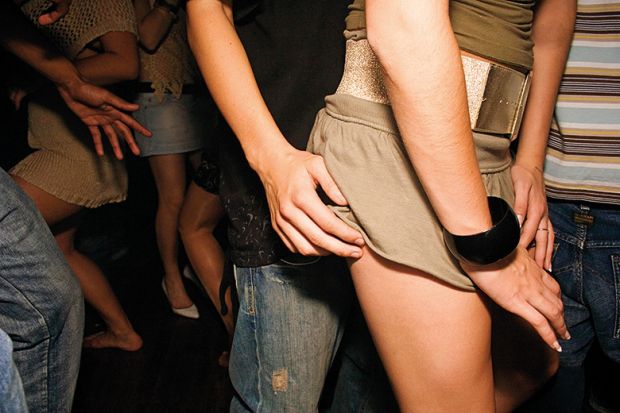Despite the complications involved with studying sexual violence, research has established that sexual assault on campus is common, and that some aspects of Western student culture – such as frat parties in the US – may create hotspots for rape.
Binge drinking in particular is widely assumed to contribute to sexual assault perpetration, with alcohol helping to induce physical and sexual aggression.
A study published in the January issue of the Journal of Studies on Alcohol and Drugs investigated patterns of drinking, socialising and sexual aggression among US college students over an extended period of time, testing the theory that men who binge drink – regardless of their personality – are more likely to perpetrate sexual assault.
The study, which was conducted at the State University of New York at Buffalo, followed 992 young men across their first five semesters at college. Before beginning the study, the researchers created personality profiles of the students, identifying known indicators of sexual aggression, such as antisocial behaviour or hostility towards women.
Each semester, the participants completed a short version of the standard “sexual experiences survey”, which asked how frequently they had instigated sexually aggressive behaviours such as unwanted touching, or sex using verbal or physical force.
“We used standard ways of asking about sexual aggression that avoid using loaded words like ‘rape’ or ‘sexual assault’ but rather are behaviourally specific,” lead author Maria Testa, associate professor in psychology at Buffalo, told Times Higher Education.
Across the study period, 175 of the 992 students in the study reported having perpetrated sexual assault at least once. These students were, as the researchers had expected, more frequent binge drinkers.
“[University at Buffalo students] are pretty representative of college students in general,” said Dr Testa. “I don’t think results would differ very much in other North American universities.”
When accounting for the characteristics shared by heavy drinkers and sexually aggressive men – such as poor self-control – binge drinking in itself did not appear to be related to sexual assault perpetration. Even when accounting for these personality factors, however, the researchers found that male students who went to bars and parties more frequently were also more likely to have perpetrated sexual assault.
“College students, aware of the strong link between drinking, drinking settings, and sexual assault, attend parties and bars to drink and find sex partners […] Predatory men may seek out these settings to target vulnerable, intoxicated women for sexual advances,” the authors report. Students may go to parties and bars with “expectations about sexual hook-ups”, Dr Testa added.
The authors concede that eliminating parties and bars at universities would not be realistic. However, they suggest that these settings would be useful targets to prevent assault by training bar staff or bystanders to be able to intervene.




